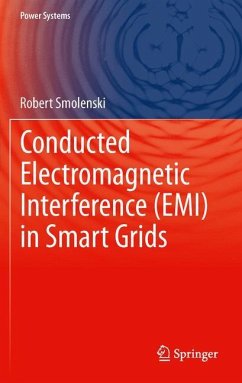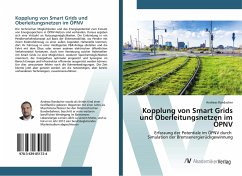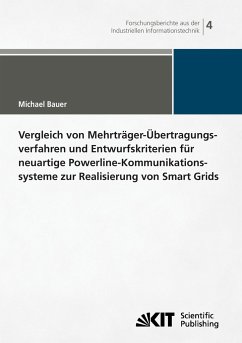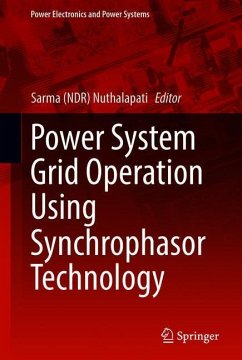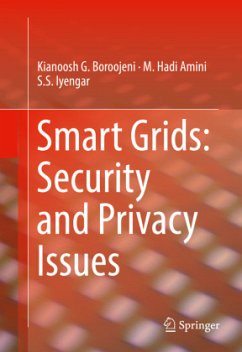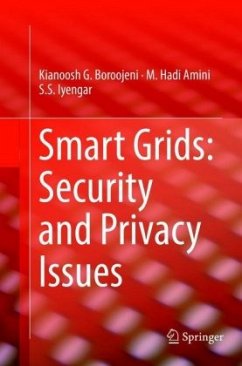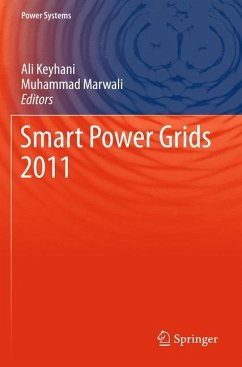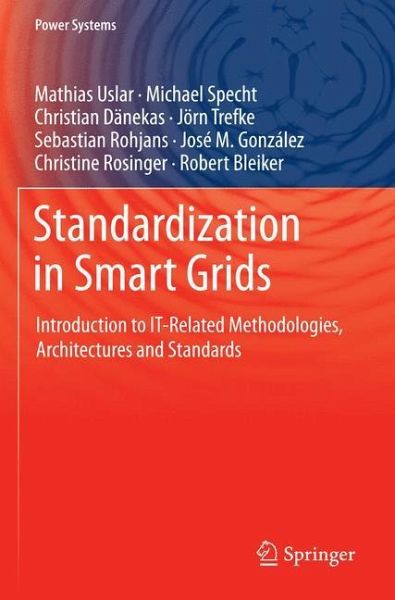
Standardization in Smart Grids
Introduction to IT-Related Methodologies, Architectures and Standards
Mitwirkender: Uslar, Mathias; Rohjans, Sebastian; Specht, Michael; Bleiker, Robert; Dänekas, Christian; Gonzalez Vazquez, Jose Manuel; Rosinger, Christine; Trefke, Jörn
Versandkostenfrei!
Versandfertig in 6-10 Tagen
76,99 €
inkl. MwSt.
Weitere Ausgaben:

PAYBACK Punkte
38 °P sammeln!
The first successful finished Smart Grid Prototype Projects deliver new requirements and best practices to meet them. These solutions will be the base for the upcoming norms and standards in the near future.This domain is not only part of one Standard developing Organization (SDO), but also of many different organizations like ITU, ISO, IEC and additionally for the electro mobility part the SAE. This results in many standards which are based on different aspects. Furthermore the European mirror organizations (ETSI,CEN, CENELEC) as well as the German mirror groups of these groups are involved, ...
The first successful finished Smart Grid Prototype Projects deliver new requirements and best practices to meet them. These solutions will be the base for the upcoming norms and standards in the near future.
This domain is not only part of one Standard developing Organization (SDO), but also of many different organizations like ITU, ISO, IEC and additionally for the electro mobility part the SAE. This results in many standards which are based on different aspects. Furthermore the European mirror organizations (ETSI,CEN, CENELEC) as well as the German mirror groups of these groups are involved, which are delivering further rules and adaption for the local market. Because of this diversity of organizations involved, it is difficult for the local companies (which includes energy utility, manufacturer and software producer specialized on integration) to identify the relevant trends, standardization groups and technologies necessary.
With the EU Mandate M490 to CEN/CNELEC and TESI and the Commission being a driving force (e.g. ftp://ftp.cencenelec.eu/CENELEC/Smartgrid/SmartGridFinalReport.pdf and http://www.cenelec.eu/aboutcenelec/whatwedo/technologysectors/smartgrids.html) standardization becomes more and more important - but it's complex and not easy to be understood. Here at OFFIS, we provide training but we are always asked for textbooks on our tranings. Based on our modules for the SG tranings, we would estimate the following chapters to be relevant to SG stakeholders in standardization (roughly 16-20 pages per chapter).
This domain is not only part of one Standard developing Organization (SDO), but also of many different organizations like ITU, ISO, IEC and additionally for the electro mobility part the SAE. This results in many standards which are based on different aspects. Furthermore the European mirror organizations (ETSI,CEN, CENELEC) as well as the German mirror groups of these groups are involved, which are delivering further rules and adaption for the local market. Because of this diversity of organizations involved, it is difficult for the local companies (which includes energy utility, manufacturer and software producer specialized on integration) to identify the relevant trends, standardization groups and technologies necessary.
With the EU Mandate M490 to CEN/CNELEC and TESI and the Commission being a driving force (e.g. ftp://ftp.cencenelec.eu/CENELEC/Smartgrid/SmartGridFinalReport.pdf and http://www.cenelec.eu/aboutcenelec/whatwedo/technologysectors/smartgrids.html) standardization becomes more and more important - but it's complex and not easy to be understood. Here at OFFIS, we provide training but we are always asked for textbooks on our tranings. Based on our modules for the SG tranings, we would estimate the following chapters to be relevant to SG stakeholders in standardization (roughly 16-20 pages per chapter).





